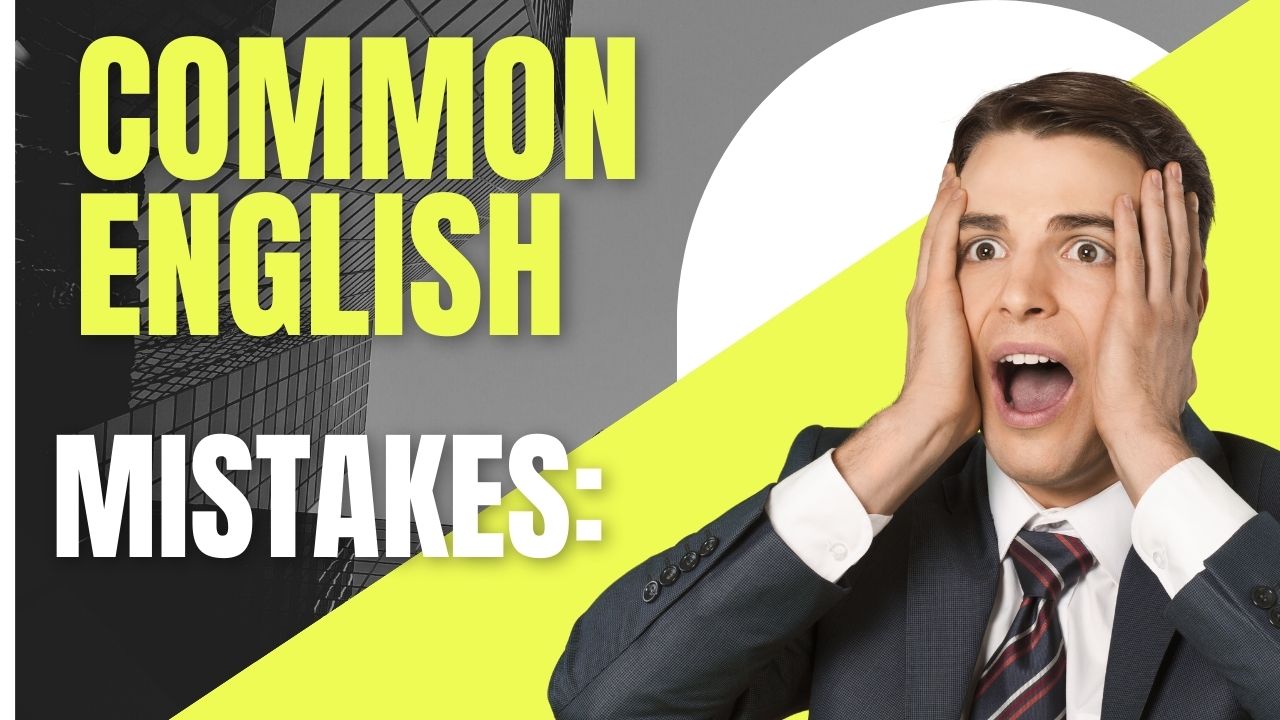Common English Mistakes:
The Use of COULD, WOULD, SHOULD
Common English Mistakes: It can be challenging to understand the correct use of certain words, such as “could,” “would,” and “should.” These words are known as modal verbs, you can use them to express various degrees of ability, possibility, and necessity. In this blog post, we will discuss some common English mistakes people make when using these modal verbs and provide tips on how you can use them correctly.
Let’s talk about these three words:
“Could”
“Would”
“Should”
These three things are confusing because people confuse the present, past, and future.
Common English Mistakes
COULD
“Could” is anything possible in the future.
Example
“I could make it to Hollywood if I am a good actor right now or if I have a chance or participated in some gigs before, or if I understand what I can put in those hours to train myself to be an actor.”
I cannot say “I can” – why can’t I say “I can” is because it is not so simple, it is not like I can go to the bus stop. But I can use “I could” because it is possible but I am not 100%, there is a bit of doubt, but it is possible by doing a bit of hard work or getting to a certain place.
Common English Mistakes:
WOULD
“Would” is something that is completely impossible but not 100%. Meaning It is almost there.
Example
I would be able to make it into Hollywood if I were over 5 feet tall.
If I am under five feet my imagination/my thinking is, it is almost impossible to be in Hollywood. So I am saying “would” because the situation is near impossible and that is going into future tense.
Common English Mistakes
SHOULD
“Should” is very easy to understand. “Should” is something that should be done
Example
“John should brush his teeth in the morning”
“The student should take his/her class seriously”
“Should’ is something recommended.
Check out this video Common English Mistakes: The Use of COULD, WOULD, SHOULD
Now let’s go to the past of the same things and discuss
Could Have
Would Have
Should have
The approach is similar to what I have explained. The first thing you should note is that there is nothing like “could has”, “would has”, or” should has”. This is incorrect English.
COULD HAVE
“Could have” is something that was possible in the past. It was really possible just that it was not completed.
Example
“I could have done my homework yesterday but I was being lazy”. Now it was not impossible to do the homework but I just didn’t do it.
WOULD HAVE
“Would have” is a bit tricky. “Would have” is actually very similar to “could have”. However, to explain it and to make it simple, it is something that was possible but there was an issue. So it is usually with an explanation.
Example
“I would have done my homework yesterday but I got sick.”
As you can see it is similar to “could have” it is not impossible to do the homework. However, there is a deep explanation for it. In this case, it is because “But I was sick”
In another case, “it would have been” “I would have been able to be the prime minister of this country, however, I was not born here”. In this case, it is somewhere near the room of impossibility because it is not just possible to be a prime minister if you were not born there. Hence, it is better to use the “would”, the more impossible it is the better. It is easier for you to say “I would”. However, these two things are pretty similar. In this case, if you have to give a reason but there were some excuses go with “would have”. That is the best way to use “would have” in the past tense.
SHOULD HAVE
“Should have” is something that was recommended. It should have been done but it was not. So I can tell a customer. “You should have got access to the course yesterday, I am not sure why you did not get it, maybe there was an email problem.
“Should have been” Something was supposed to be done but it did not happen. So it is more like a recommendation or giving suggestions in the case of “should have”. It is also holding someone accountable for something that should have been done and why it has not been done.
In conclusion, you need to understand the correct use of modal verbs like “could,” “would,” and “should”. This will help you communicate more effectively in English. Moreover, you should avoid these common mistakes by using them correctly and this can make your language sound more natural and fluent. In addition by practising and using these modal verbs correctly, you will be well on your way to mastering English.
Check out this English Mastery Course
English Mastery Course: 35 Hours: English Grammar, Speaking, & Writing

